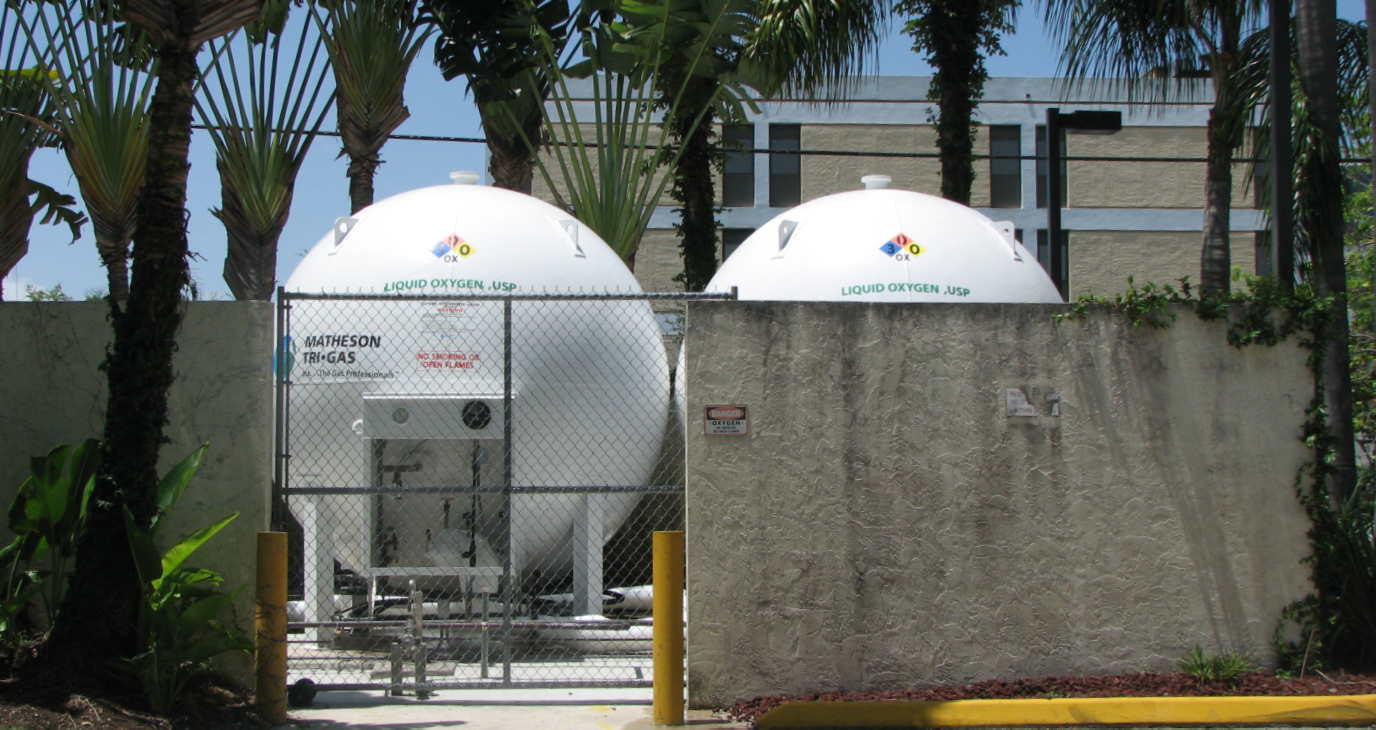LOX
Liquid oxygen can be referred to as LOX. If you wonder how the oxygen is delivered to your hospital room, if you ever need it (and I hope you don't ever need it) here is how it is arranged at the South Miami hospital. This storage is out in full sun, and today, I was sweating while taking this photo and it felt like 100 degree Fahrenheit (that's about 38 degree Celsius for you metric people) in my cloth.
Oxygen becomes a liquid at temperatures below its boiling point of -183°C and takes on a pale blue color weighing 1.14 times the weight of water. When the temperature of liquid oxygen is greater then -118.6°C, the liquid will return back into a gas regardless of the pressure exerted on it. This is known as the critical temperature. How do they keep it in liquid form under the Florida sun?
The liquid oxygen is kept in insulated containers (called dewars and 1 Liter of liquid oxygen provides 860 Liters of gas.) These keep the oxygen in liquid form at a temperature of -170 degrees Celsius. The container consists of a lower portion where the oxygen is in a liquid state and a smaller upper portion where the liquid has evaporated creating a gas. When the unit is being used by the consumer, a flow control valve is opened to deliver oxygen gas. This creates a pressure gradient between the gas-filled upper portion of the container (called the head pressure) and the atmospheric pressure. Liquid oxygen passes through a warming coil, is converted to a gas, and is made available for delivery. When the upper portion falls below a certain pressure, liquid oxygen is drawn up from the bottom of the container to provide a constant flow. Enough physics already. Sorry!


No comments:
Post a Comment